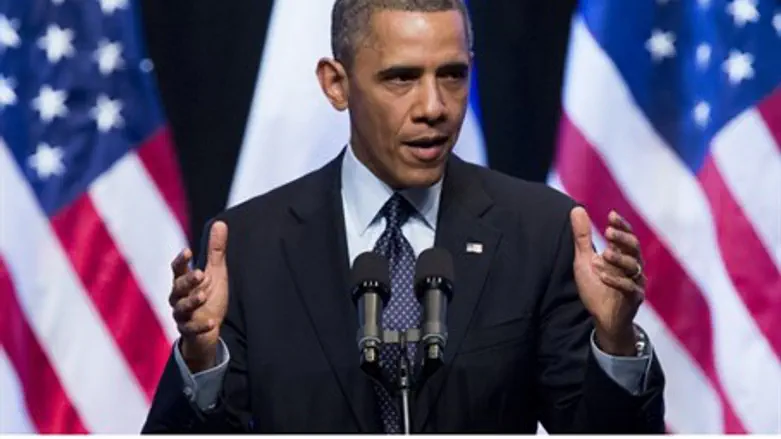
A senior Iranian official welcomed on Wednesday the "moderate and respectful tone" of U.S. President Barack Obama's speech to the UN General Assembly, as newspapers hailed a new path for the Islamic Republic, reports AFP.
"It seems a new climate has been created with the rise to power of a new Iranian government, and all international parties are trying to react to this new climate," said Deputy Foreign Minister Morteza Sarmadi.
"For example, Barack Obama has tried to use a more moderate and respectful tone," he said, in remarks quoted by the ISNA news agency.
"But no doubt what's important in foreign policy are actions," he said. If the world's major powers "respect Iran's nuclear rights under the nuclear Non-Proliferation Treaty, I think reaching a solution is imaginable."
Meanwhile, the Iranian press welcomed Obama's speech, saying it recognized Washington's “past mistakes."
In remarks before the General Assembly in New York on Tuesday, the U.S. president pushed for a “diplomatic path” with the new Iranian government.
The moderate Donya-e-Eqtesad daily greeted Obama's “different tone," while the conservative Jomhouri Eslami reveled in a declaration that “the United States does not seek regime change” in Iran.
The reformist Shargh newspaper hailed Obama’s speech for opening up “a new path” for the relationship between the two arch-foes, which have had no diplomatic ties since the Islamic Revolution.
“Even those most pessimistic to an opening in relations have accepted that the time for change has arrived,” its editorial said, according to AFP.
It added that the international situation has “significantly changed in Iran’s favor," and argued that Israeli Prime Minister Binyamin Netanyahu would be “isolated” as a "warmonger."
Engaging in negotiations with Washington and world powers over Tehran’s nuclear drive, Shargh said, would culminate in the recognition of Iran’s “rights."
Etemad, another reformist daily, quoting ex-deputy foreign minister Mehdi Mohtashami, said Obama acknowledging “past mistakes” was a sign that the two sides “have the will to fight against mistrust."
Several newspapers, including the government-run Iran daily, reveled in Obama’s declaration in recognizing a religious decree by supreme leader Ayatollah Ali Khamenei on a ban against weapons of mass destruction, including nuclear arms.
However, optimism was not shared by all the Islamic republic's media.
The hardline Kayhan daily mocked Obama’s “jabbering against Iran," while saying his declared respect for Tehran to operate a peaceful nuclear program was “a sign of Iran’s power."
Political analyst Saeed Leylaz, writing in Shargh, was critical of “the illusion of a magic wand” that possible rapprochement with the United States would solve all of Iran's problems.
“Negotiations cannot solve the economic and political problems of Iran,” he said. “The solution must come from within.”
Since Rouhani was elected president, he has called for "constructive interaction" with the world, a dramatic shift in tone from the anti-Western and anti-Israeli rhetoric of his predecessor, Mahmoud Ahmadinejad.
Rouhani has exchanged letters with Obama, who wrote to himthat the United States is ready to resolve its nuclear dispute with Iran in a way that allows Tehran to show it is not trying to build weapons.
Senior administration officials said Tuesday that Obama was open to meeting Rouhani on the sidelines of the United Nations General Assembly, but Rouhani refused.
(Arutz Sheva’s North American Desk is keeping you updated until the start of Shmini Atzeret and Simchat Torah in New York. The time posted automatically on all Arutz Sheva articles, however, is Israeli time.)
